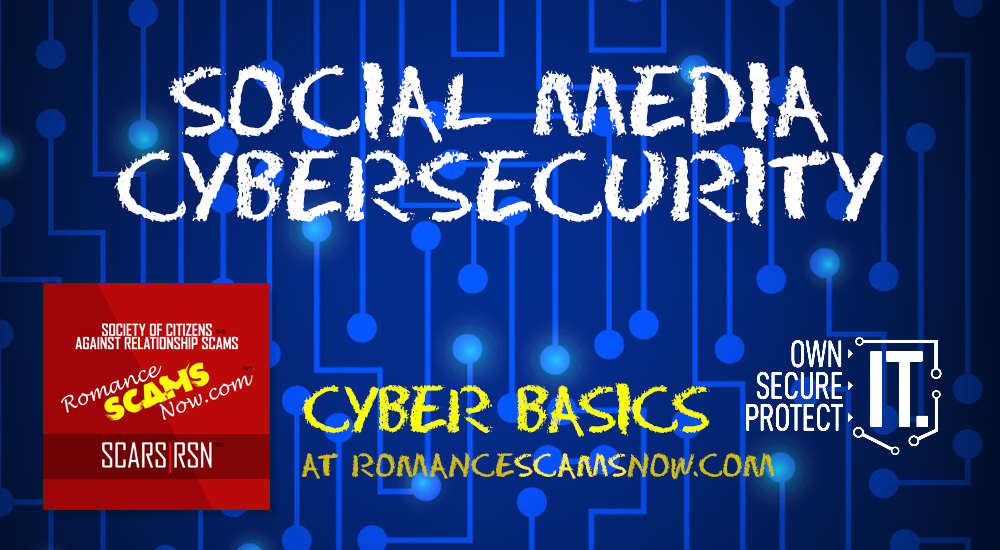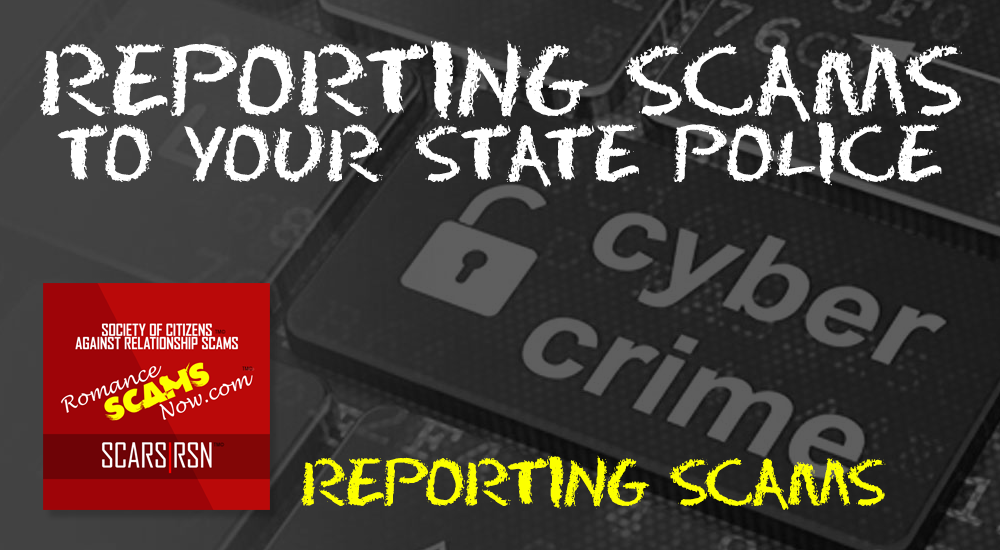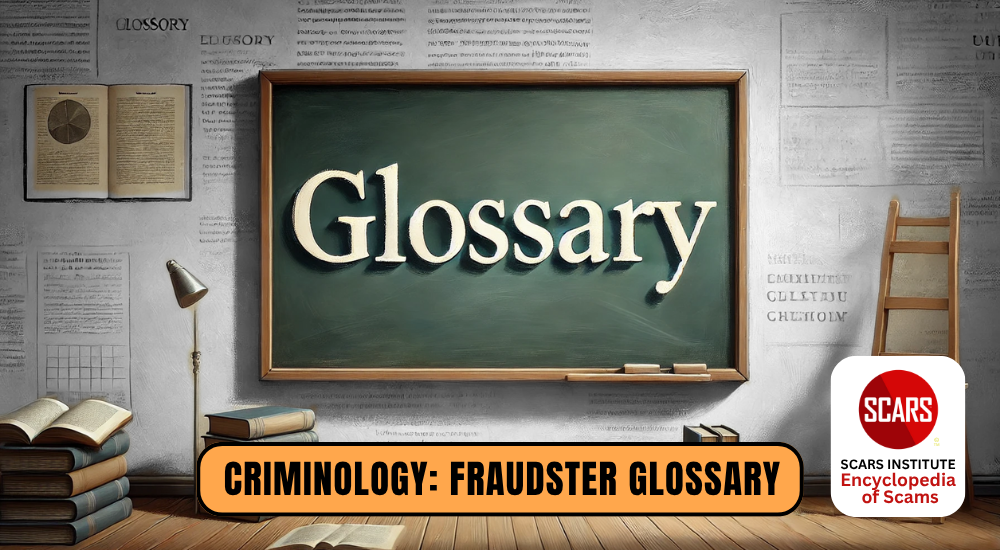
SCARS Institute’s Encyclopedia of Scams™ Published Continuously for 25 Years

SCARS™ Guide: Reporting Scams To U.S. State Police Cybercrime Agencies
As A Result Of Actions By The Trump Administration, State Police Agencies Throughout The United States Have Substantially Improved Their Cybercrime Investigative And Support Capabilities
As a result we recommend now that instead of reporting to local law enforcement that you contact your state police cybercrimes unit.
[lwptoc]Here Is A Directory With Links To State Police Cybercrime Agencies In The U. S. Of A.
Alabama
Alaska
Arizona
- Criminal Investigations Division, Arizona Department of Public Safety
- Data Privacy and Security, Arizona Attorney General
Arkansas
- Cyber Crimes, Arkansas Attorney General
- Special Investigations Division, Arkansas Attorney General
- Arkansas Attorney General Identity Theft Program
California
- California Cyber Crime Center, State of California, Department of Justice
- eCrime Unit, State of California, Department of Justice
- Bureau of Investigation, State of California, Department of Justice
- Identity Theft Victim Checklist, State of California, Department of Justice
Colorado
Connecticut
- The District of Connecticut’s Cybercrime Program, U.S. Department of Justice
- Computer Crimes / Electronic Evidence Laboratory, Dept of Emergency Services / Public Protection
Delaware
Florida
- Computer Crime Center, Florida Department of Law Enforcement
Georgia
Hawaii
Idaho
Illinois
Indiana
- Cybercrime & Investigative Technologies Section, Indiana State Police
- Indiana State Police Cyber Crime Unit
- Report an Internet Crime, Indiana State Police
Iowa
Kansas
Kentucky
- Cyber Crimes Unit, Kentucky Attorney General
- Department of Criminal Investigations, Kentucky Attorney General
Louisiana
- The Cyber Crime Unit, Louisiana Department of Justice, Attorney General
Maine
- Computer Crimes Unit, Maine State Police
- Consumer Protection, Identity Theft & Privacy, Maine Attorney General
Maryland
- Computer Crimes Unit, Criminal Enforcement Division, Maryland State Police
- Identity Theft Unit, Maryland Attorney General
Massachusetts
- The Cyber Crime Division, Office of the Attorney General
- Attorney General’s Guide to ID Theft for Victims and Consumers
Michigan
Minnesota
Mississippi
- Cyber Crime Unit, Mississippi Attorney General
- Identity Theft, Office of the Attorney General of Mississippi
Missouri
- Digital Forensics Investigative Unit, Missouri State Highway Patrol
- Identity Theft, Missouri Department of Revenue
Montana
- Computer Crime, Montana Department of Justice
- Investigations Bureau, Montana Department of Justice
- Identity Theft & Security Freeze, Office of Consumer Protection, Montana Department of Justice
Nebraska
- Nebraska State Patrol, Investigative Services
- Identity Theft, Protect the Good Life, Nebraska Attorney General
Nevada
New Hampshire
- New Hampshire Criminal Justice Bureau
- Major Crime Unit, Investigative Services Bureau, New Hampshire Department of Safety
New Jersey
- Cyber Crimes Unit, New Jersey State Police
- High Tech Crime Bureau, New Jersey State Police
- Digital Technology Investigations Unit, New Jersey State Police
- The Official Website for the State of New Jersey, Internet Safety
- Cyber Fraud Unit, New Jersey Division of Consumer Affairs
New Mexico
- New Mexico State Police, Criminal Investigation Section
New York
- Computer Crime Unit, New York State Police
- Bureau of Internet and Technology, New York State Attorney General’s Office
- The New York County District Attorney’s Office, Resources for Victims of Identity Theft/Cybercrime
North Carolina
North Dakota
Ohio
- Identity Theft Unit, Ohio Attorney General
- Cyber Crimes Unit, Bureau of Criminal Investigation, Ohio Attorney General
Oklahoma
- Computer Crimes Unit, Oklahoma State Bureau of Investigation
- Identity Theft Passport, Oklahoma State Bureau of Investigation
Oregon
Pennsylvania
- Computer Crimes Unit, Pennsylvania State Police
- Report a Possible Sexual Cybercrime, Pennsylvania Attorney General
Rhode Island
South Carolina
South Dakota
Tennessee
- Cybercrime, Tennessee Bureau of Investigation
- Identity Crimes Unit, Tennessee Department of Safety & Homeland Security
- Technical Services Unit, Tennessee Bureau of Investigation
Texas
Utah
Vermont
- Technology Investigation Unit, Vermont State Police
- Vermont Intelligence Center, Vermont State Police
- Identity Theft and Fraud, Vermont Department of Taxes
Virginia
- Computer Crime, Attorney General of Virginia
- High Tech Crimes, Virginia State Police
- Identity Theft, Attorney General of Virginia
Washington
West Virginia
- Identity Theft Prevention, West Virginia Attorney General
- West Virginia Identity Theft Resource Center
Wisconsin
- Division of Criminal Investigation, Wisconsin Department of Justice
- Identity Theft, State of Wisconsin Department of Revenue
Wyoming
- Identity Theft, Wyoming Department of Transportation
- Computer and High Tech Crimes, Wyoming Division of Criminal Investigation
If we have overlooked any entities or agencies, please add them in a comment below.
Directory of U.S. Federal Cybercrime Law Enforcement
- Central Intelligence Agency, Report Threats
-
Federal Bureau of Investigation Internet Crime Complaint Center
- FBI Directory of Field Offices by U.S. State
-
Federal Trade Commission, Identitytheft.gov
-
IRS, Report Phishing and Online Scams
- National Intellectual Property Rights Coordination Center
- USA.gov – How to Report a Cybercrime
- US-CERT – Report Incidents, Phishing, Malware, or Vulnerabilities
- U.S. Department of Homeland Security, Law Enforcement Cyber Incident Reporting
- U.S. Department of Justice Computer Crime and Intellectual Property Section
- U.S. Secret Service Electronic Crimes Task Force
Additional Resources:
PLEASE SHARE OUR ARTICLES WITH YOUR CONTACTS
HELP OTHERS STAY SAFE ONLINE
SCARS™ Team
A SCARS Division
Miami Florida U.S.A.
TAGS: SCARS, Important Article, Information About Scams, Anti-Scam, State Police Cybercrime Agencies, U.S. Federal Cybercrime Law Enforcement, Reporting Scams, U.S. State Police Cybercrime Agencies, Reporting Scams To The Police, Local Police
The Latest SCARS|RSN Posts
FIND MORE SCAM NEWS
«SCAMCRIME.COM»
CHAT WITH SCARS™
«CLICK HERE»
END
MORE INFORMATION
– – –
Tell us about your experiences with Romance Scammers in our
« Scams Discussion Forum on Facebook »
– – –
FAQ: How Do You Properly Report Scammers?
It is essential that law enforcement knows about scams & scammers, even though there is nothing (in most cases) that they can do.
Always report scams involving money lost or where you received money to:
- Local Police – ask them to take an “informational” police report – say you need it for your insurance
- State Police Cybercrimes Unit – this is where you will have the best experience and help
- Your National Police or FBI « www.IC3.gov »
- The SCARS|CDN™ Cybercriminal Data Network – Worldwide Reporting Network « HERE » or on « www.Anyscam.com »
This helps your government understand the problem, and allows law enforcement to add scammers on watch lists worldwide.
– – –
Visit our NEW Main SCARS Facebook page for much more information about scams and online crime: « www.facebook.com/SCARS.News.And.Information »
To learn more about SCARS visit « www.AgainstScams.org »
Please be sure to report all scammers
« HERE » or on « www.Anyscam.com »
Legal Notices:
All original content is Copyright © 1991 – 2020 SCARS All Rights Reserved Worldwide & Webwide. Third-party copyrights acknowledge.
SCARS, RSN, Romance Scams Now, SCARS|WORLDWIDE, SCARS|GLOBAL, SCARS, Society of Citizens Against Relationship Scams, Society of Citizens Against Romance Scams, SCARS|ANYSCAM, Project Anyscam, Anyscam, SCARS|GOFCH, GOFCH, SCARS|CHINA, SCARS|CDN, SCARS|UK, SCARS Cybercriminal Data Network, Cobalt Alert, Scam Victims Support Group, are all trademarks of Society of Citizens Against Relationship Scams Incorporated.
Contact the law firm for the Society of Citizens Against Relationship Scams Incorporated by email at legal@AgainstScams.org
-/ 30 /-
What do you think about this?
Please share your thoughts in a comment below!
Table of Contents
- As A Result Of Actions By The Trump Administration, State Police Agencies Throughout The United States Have Substantially Improved Their Cybercrime Investigative And Support Capabilities
- Here Is A Directory With Links To State Police Cybercrime Agencies In The U. S. Of A.
- Directory of U.S. Federal Cybercrime Law Enforcement
- The Latest SCARS|RSN Posts
- U.S. Veterans Benefits Scams – 2026
- New AI Voice Cloning Phone Scams – 2026
- An Essay on Justice and Money Recovery – 2026
- Virtual Kidnapping & Extortion – Proof of Life Images or Videos – 2026
- Fake Money Recovery Law Firms – 2026
- Money Laundering Drop Accounts – 2026
LEAVE A COMMENT?
Recent Comments
On Other Articles
- Arwyn Lautenschlager on Love Bombing And How Romance Scam Victims Are Forced To Feel: “I was love bombed to the point that I would do just about anything for the scammer(s). I was told…” Feb 11, 14:24
- on Dani Daniels (Kira Lee Orsag): Another Scammer’s Favorite: “You provide a valuable service! I wish more people knew about it!” Feb 10, 15:05
- on Danielle Delaunay/Danielle Genevieve – Stolen Identity/Stolen Photos – Impersonation Victim UPDATED 2024: “We highly recommend that you simply turn away form the scam and scammers, and focus on the development of a…” Feb 4, 19:47
- on The Art Of Deception: The Fundamental Principals Of Successful Deceptions – 2024: “I experienced many of the deceptive tactics that romance scammers use. I was told various stories of hardship and why…” Feb 4, 15:27
- on Danielle Delaunay/Danielle Genevieve – Stolen Identity/Stolen Photos – Impersonation Victim UPDATED 2024: “Yes, I’m in that exact situation also. “Danielle” has seriously scammed me for 3 years now. “She” (he) doesn’t know…” Feb 4, 14:58
- on An Essay on Justice and Money Recovery – 2026: “you are so right I accidentally clicked on online justice I signed an agreement for 12k upfront but cd only…” Feb 3, 08:16
- on The SCARS Institute Top 50 Celebrity Impersonation Scams – 2025: “Quora has had visits from scammers pretending to be Keanu Reeves and Paul McCartney in 2025 and 2026.” Jan 27, 17:45
- on Scam Victims Should Limit Their Exposure To Scam News & Scammer Photos: “I used to look at scammers photos all the time; however, I don’t feel the need to do it anymore.…” Jan 26, 23:19
- on After A Scam, No One Can Tell You How You Will React: “This article was very informative, my scams happened 5 years ago; however, l do remember several of those emotions and/or…” Jan 23, 17:17
- on Situational Awareness and How Trauma Makes Scam Victims Less Safe – 2024: “I need to be more observant and I am practicing situational awareness. I’m saving this article to remind me of…” Jan 21, 22:55
ARTICLE META
Important Information for New Scam Victims
- Please visit www.ScamVictimsSupport.org – a SCARS Website for New Scam Victims & Sextortion Victims
- Enroll in FREE SCARS Scam Survivor’s School now at www.SCARSeducation.org
- Please visit www.ScamPsychology.org – to more fully understand the psychological concepts involved in scams and scam victim recovery
If you are looking for local trauma counselors please visit counseling.AgainstScams.org or join SCARS for our counseling/therapy benefit: membership.AgainstScams.org
If you need to speak with someone now, you can dial 988 or find phone numbers for crisis hotlines all around the world here: www.opencounseling.com/suicide-hotlines
A Note About Labeling!
We often use the term ‘scam victim’ in our articles, but this is a convenience to help those searching for information in search engines like Google. It is just a convenience and has no deeper meaning. If you have come through such an experience, YOU are a Survivor! It was not your fault. You are not alone! Axios!
A Question of Trust
At the SCARS Institute, we invite you to do your own research on the topics we speak about and publish, Our team investigates the subject being discussed, especially when it comes to understanding the scam victims-survivors experience. You can do Google searches but in many cases, you will have to wade through scientific papers and studies. However, remember that biases and perspectives matter and influence the outcome. Regardless, we encourage you to explore these topics as thoroughly as you can for your own awareness.
Statement About Victim Blaming
SCARS Institute articles examine different aspects of the scam victim experience, as well as those who may have been secondary victims. This work focuses on understanding victimization through the science of victimology, including common psychological and behavioral responses. The purpose is to help victims and survivors understand why these crimes occurred, reduce shame and self-blame, strengthen recovery programs and victim opportunities, and lower the risk of future victimization.
At times, these discussions may sound uncomfortable, overwhelming, or may be mistaken for blame. They are not. Scam victims are never blamed. Our goal is to explain the mechanisms of deception and the human responses that scammers exploit, and the processes that occur after the scam ends, so victims can better understand what happened to them and why it felt convincing at the time, and what the path looks like going forward.
Articles that address the psychology, neurology, physiology, and other characteristics of scams and the victim experience recognize that all people share cognitive and emotional traits that can be manipulated under the right conditions. These characteristics are not flaws. They are normal human functions that criminals deliberately exploit. Victims typically have little awareness of these mechanisms while a scam is unfolding and a very limited ability to control them. Awareness often comes only after the harm has occurred.
By explaining these processes, these articles help victims make sense of their experiences, understand common post-scam reactions, and identify ways to protect themselves moving forward. This knowledge supports recovery by replacing confusion and self-blame with clarity, context, and self-compassion.
Additional educational material on these topics is available at ScamPsychology.org – ScamsNOW.com and other SCARS Institute websites.
Psychology Disclaimer:
All articles about psychology and the human brain on this website are for information & education only
The information provided in this article is intended for educational and self-help purposes only and should not be construed as a substitute for professional therapy or counseling.
While any self-help techniques outlined herein may be beneficial for scam victims seeking to recover from their experience and move towards recovery, it is important to consult with a qualified mental health professional before initiating any course of action. Each individual’s experience and needs are unique, and what works for one person may not be suitable for another.
Additionally, any approach may not be appropriate for individuals with certain pre-existing mental health conditions or trauma histories. It is advisable to seek guidance from a licensed therapist or counselor who can provide personalized support, guidance, and treatment tailored to your specific needs.
If you are experiencing significant distress or emotional difficulties related to a scam or other traumatic event, please consult your doctor or mental health provider for appropriate care and support.
Also read our SCARS Institute Statement about Professional Care for Scam Victims – click here to go to our ScamsNOW.com website.

























Thank you for your comment. You may receive an email to follow up. We never share your data with marketers.